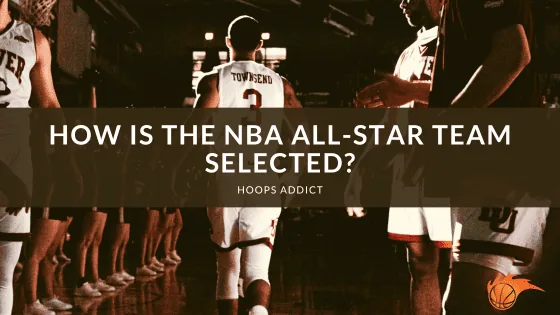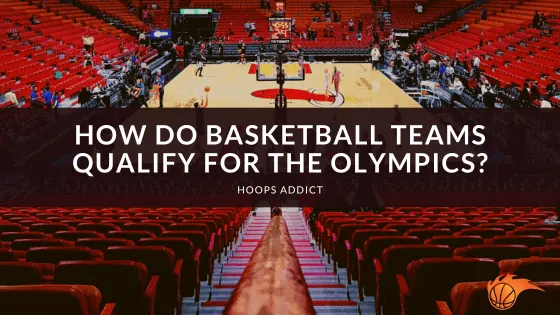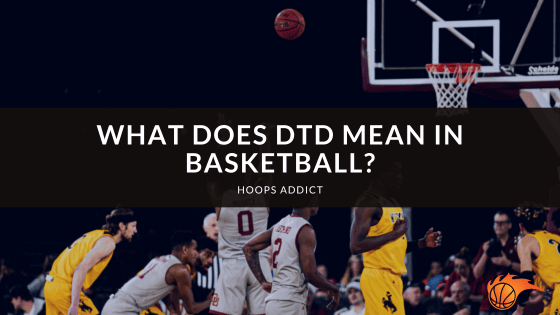Kyle Korver is one of those rare breeds of 40-year-old NBA players who can still compete with the best of them with his skill set.
Korver is a deadly three-point shooter and would be an asset to any team he plays. He is not a sunset player, but he decided to retire.
Know what happened to Kyle Korver and why he gave up his NBA career.
 Who is Kyle Korver?
Who is Kyle Korver?
Kyle Elliot Korver was the eldest of four children to parents Kevin Korver and Laine. He was born on March 17, 1981, in Lakewood, California to a family of preachers and basketeers. Kyles’ four uncles played basketball, and his mother scored 73 points in a high school game. His father and grandfather, Harold, were local church pastors.
The family moved to Pella, Iowa when Kyle was in sixth grade. He and his three siblings enrolled in Pella High School and are listed in the top ten in all-time scoring and -rebounding at the school.
College Career
Kyle pursued his college studies at Creighton University and wore the Bluejays jersey for four seasons from 1999 to 2003.
As a freshman, Kyle showed signs of his extraordinary basketball skills getting named to several symbolic teams of the year like the Missouri Valley Conference’s (MVC) All-Bench team, All-Freshman team, and All-Newcomer team. His production as the sixth-man was 43.4 percent from three-pointers, 89.5 percent from free throws, and 8.8 PPG.
In the 2000-01 season, Kyle led the Bluejays with 14.6 points on the way to the Missouri Valley Conference title and an at-large bid at the 2001 March Madness tournament. He made 100 three-pointers with 45.2 percent accuracy and was ranked 12th nationally from downtown. Kyle’s efforts earned him second-team All-MVC honors and a place on the MVC All-Tournament team.
As a junior, Kyle led the Bluejays in all departments with 15.1 PPG, 5.5 RPG, 3.3 APG, and 1.6 SPG and a two-peat MVC title. His 89.0 free throw percentage ranked him 12th nationally and 41st beyond the arc with 42.9 percent accuracy. He was named MVC Player of the Year and an All-America second team by the Associated Press.
In his senior year in 2002-03, Kyle was one of six players to win the MVC Player of the Year honors for two years in a row. He was unanimously chosen as an All-American and was named to the second team by ESPN, the Associated Press, and the USBWA.
Basketball Performance Notes
Here’s a rundown on Kyle Korver’s highlights reflecting his basketball performance during his four-year stint with the Creighton Bluejays.
- Played in 128 games producing 14.1 PPG, 5.2 RPG, 1.3 SPG, and 0.5 BPG.
- Ranked first in Creighton for 371 made three-points, 45.9 percent three-point accuracy, and 89.1 percent free throw accuracy.
- The 371 successful-three pointers is an MVC record and tie the 6th spot in NCAA history.
- Holds Creighton’s single-season record for 129 three-pointers made, 48 percent three-point accuracy, and 90.8 free-throw percentage.
- Was the school’s first player to participate in four straight NCAA tournaments.
Before graduating, Kyle Korver announced his intention to join the 2003 NBA draft.
 Kyle Korver NBA Career Highlights
Kyle Korver NBA Career Highlights
Kyle Korver was a 17-year (2003-20) NBA veteran playing for six franchises the Philadelphia 76ers, Utah Jazz, Chicago Bulls, Atlanta Hawks, Cleveland Cavaliers, and Milwaukee Bucks. He played in 1232 regular games and 145 playoff matches averaging 9.7 points, three rebounds, and 1.7 assists. Korver was known as a dead-eye three-point marksman.
Korver was the 51st pick in the second round by the New Jersey Nets, now known as the Brooklyn Nets, in the 2003 NBA draft. His draft rights were sold to the Philadelphia 76ers due to budget constraints. He spent five seasons (2003-07) with the franchise before getting traded to the Utah Jazz. In his last season with the 76ers, Korver led the league in free throw percentage, was ninth in three-points tally, played 74 games, and matched his career high 31 points with six treys.
Korver averaged 8.6 points, 2.5 rebounds, and 1.5 assists playing four seasons with the Utah Jazz, 2007-09 and 2018. In 2009, Korver was the Three-point King with 53.6 percent nosing out Steve Kerr’s 52.4 percent set in 1994-95. In the 2009-10 season, Korver missed the first 23 games due to surgery in his left knee.
In 2010, the Bulls signed Korver, and he played in all 82 regular-season games as the sixth man. The Bulls was the top seed in the Eastern Conference (62-20) but lost to the Heat in five games. The following season (2011-12), Korver’s productions were 8.1 PPG, 2.4 RPG, and 1.7 APG in 65 games.
Korver was traded to the Atlanta Hawks in 2012 and played for the franchise for five seasons until 2017. Korver broke Dana Barros’ NBA record of 89 made three-pointers in consecutive games on December 6, 2013, when he made 90. He led the NBA in three-point shooting percentage at the end of the 2013–14 season with 47.2%. While at the Atlanta-based franchise, Korver had a call-up to the 2015 NBA All-Star and was a recipient of the 2014-15 NBA Sportsmanship Award.
Korver paired with fellow 2003 draftee LeBron James in the Cavaliers franchise on January 7, 2017. He became the seventh player to make 2,000 three-pointers. The Cavs reached the Finals, but the Golden State Warriors defeated them in five games. In season 2017-18, Korver surpassed Paul Pierce for fourth place in three-pointers made with 2,147. It was back to the NBA Finals for the Cavs against the Golden State Warriors that swept them.
The Milwaukee Bucks signed Korver to a one-year deal in season 2019-20. But injuries plagued him, limiting his playing time. When the contract elapsed, Korver did not re-sign but quietly retired to spend time with his family.
 Why Kyle Korver Isn’t Playing Anymore?
Why Kyle Korver Isn’t Playing Anymore?
Kyle Korver played his last game at 40 with the Bucks on September 8, 2020, in Game 5 of the 2020-21 Eastern Semifinals series against the Miami Heat. The reason isn’t about injuries or a subpar performance due to age, but he wanted to spend time with his wife and three kids.
Korver was playing for the Cavs in 2017 and had a chance to win a championship ring with King James leading the charge. A tragic incident hit his family a month before the playoffs. Korver’s younger brother Kirk had an organ failure and needed a liver transplant. His body was weak to survive the ailment, and pass away surrounded by his loved ones.
A week later, Korver played, but the Cavs lost in the finals. He transferred to the Jazz the next season and was traded to the Bucks to play in the bubble.
Teams were interested in his services after his Bucks’ contract expired, but Korver put basketball on hold for quality time with his family. The stigma of his brother’s untimely death taught Korver that life is short and unpredictable. Korver wanted to devote his time to the family, keeping him and the people in the loop happy.
 Kyle Korver’s Life After His NBA Career
Kyle Korver’s Life After His NBA Career
Basketball runs in the blood of basketball players, they coach or do office work for the franchise after retirement. Kyle Korver is no different.
After his quiet retirement from the Bucks franchise, the Brooklyn Nets hired Korver to join Steve Nash’s coaching staff as a player development coach in 2021. He works with the players to boost their game, like coaching Ben Simmons to improve his jump shots.
It was back to the Atlanta Hawks in 2022 for Korver as the franchise’s team director of players and development. Korver donned the Hawks jersey for four and a half seasons (2012-17) to achieve these milestones:
- 3x NBA three-point field goal percentage leader (2010, 2014, 2017)
- NBA All-Star (2015)
- NBA Sportsmanship Award (2015)
- Played 332 games averaging 10.9 points, 3.7 rebounds, and 2.4 assists with a 45.2 percent three-point clip.
Korver’s newly-created position involves collaborating with the coaches, athletic performance team, and front office to develop and supervise a development plan for each player.
Wrapping Things Up: What Happened to Kyle Korver?
Kyle Korver’s retirement after his contract with the Milwaukee Bucks elapsed kept many people puzzled. Teams were interested in hiring him to beef up their lineup.
The untimely death of his younger brother, Kirk, taught him that life is short and that keeping him and his family happy is more important than playing.
Korver’s decision gave him the best of both worlds by staying connected with basketball and spends quality time with his family.
We hope you enjoyed this post! If you did, be sure to check out our other basketball FAQ articles here.

 Who is Kyle Korver?
Who is Kyle Korver? Kyle Korver NBA Career Highlights
Kyle Korver NBA Career Highlights Why Kyle Korver Isn’t Playing Anymore?
Why Kyle Korver Isn’t Playing Anymore? Kyle Korver’s Life After His NBA Career
Kyle Korver’s Life After His NBA Career

